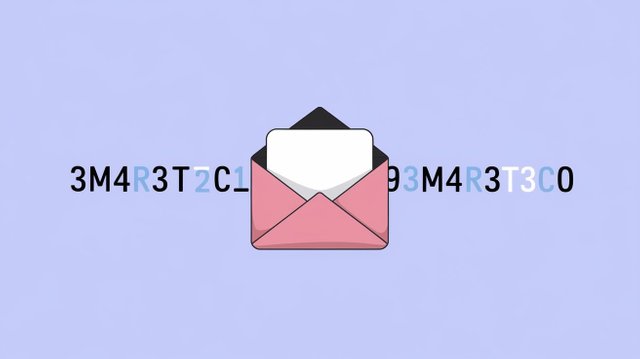Top 5 Reasons to Ditch Your Current Email for an Encrypted Email Service
In today's digital world, email is still one of the most common and at the same time most vulnerable ways of communicating. Even though there have been advances in cybersecurity, big email providers like Gmail, Outlook and Yahoo still leave their users open to surveillance, hacking and data breaches. If you care about privacy, security, and control over your communications, it's time to switch to an encrypted email service.
This article looks at the top five reasons why your current email provider isn't up to scratch -- and why an encrypted email service is the only solution for professionals, businesses, and privacy-conscious individuals.

1. Your Current Email Provider Sells Your Data (or Lets Others Access It)
The Problem: Mass Surveillance & Data Monetization
Most free email services (Gmail, Yahoo, etc.) rely on advertising-based revenue models, meaning they scan your emails to serve targeted ads. Even if they claim to have stopped manual scanning, automated algorithms still process your data.
Worse, third parties -- governments, ISPs, and hackers -- can intercept unencrypted emails. The Five Eyes alliance (US, UK, Canada, Australia, NZ) has been known to collect email metadata under mass surveillance programs like PRISM.
The Solution: Zero-Access Encryption
A true encrypted email service implements zero-access encryption:
Encryption occurs client-side (on your device) before data reaches servers.
The provider never stores decryption keys, making emails unreadable even to them.
2. Unencrypted Emails Are Easy Targets for Hackers
The Problem: Man-in-the-Middle (MITM) Attacks & Phishing
Standard email protocols transmit messages in plaintext unless TLS (Transport Layer Security) is enforced. Even then, TLS can fail due to misconfigurations or downgrade attacks.
Hackers exploit these weaknesses through:
Email interception (e.g., snooping on public Wi-Fi)
Phishing & spoofing (fake emails mimicking legitimate senders)
Breaches of email servers (Yahoo's 3 billion accounts hacked in 2013)
The Solution: End-to-End Encrypted Email
An encrypted email service ensures that messages are encrypted before they leave your device and remain secure until the recipient decrypts them. Even if intercepted, the content is unreadable.
3. Anonymous Signups: Minimizing Your Digital Fingerprint
The Problem: Mandatory Personal Data Collection
Traditional email providers have turned account creation into an invasive data collection exercise. To simply sign up for services like Gmail or Outlook, you're forced to surrender highly sensitive personal information---most notably a phone number, which then becomes permanently tied to your digital identity. There's no legitimate security justification for these requirements---they exist primarily to feed surveillance capitalism and enable cross-platform tracking. Even when alternatives like VoIP numbers are permitted, the very demand for any phone verification represents an unacceptable privacy violation for what should be a basic communication service.
The Solution: No-Login Email Accounts
Unlike mainstream providers that demand phone numbers or alternate emails for "verification," leading encrypted email services prioritize anonymity by eliminating mandatory personal data collection. By minimizing digital fingerprinting---no linked accounts and no SIM-based recovery---these services ensure your identity stays disconnected from your communications.
4. Beyond Passwords: Secure Account Recovery
The Problem: SIM Swapping & Weak 2FA
Traditional email providers rely on shockingly vulnerable account recovery methods---primarily SMS-based two-factor authentication and recovery emails---that have become prime targets for attackers. SIM-swapping attacks have surged by over 300% in recent years, with criminals socially engineering carriers to hijack phone numbers and bypass security.
Even "secure" providers often fall back to weak fallbacks like security questions (easily researched) or alternate emails (creating a chain of vulnerability). This outdated approach treats your phone number as an identity validator when it's actually one of the easiest digital assets to steal, leaving accounts protected by nothing more than a customer service rep's willingness to verify a hacker's story.
The Solution: Cryptographic Account Access
Progressive encrypted email services are redefining account security by eliminating phone-based recovery entirely. Services like Atomic Mail provide 12 word seed phrases---mathematically generated recovery keys stored offline. These solutions establish true cryptographic ownership.
5. Escape the Freemium Trap: Real Features Without Paywalls
The Problem: Artificial Limitations in Big Tech Email
Mainstream email providers have turned basic functionality into premium features, creating artificial barriers designed to push users toward paid plans. Essential tools like custom domains, encrypted storage, and disposable aliases are locked behind expensive subscriptions, while free users face restrictive limits.
The Solution: Encrypted Email's Transparent Pricing
Unlike the manipulative freemium models of mainstream providers, many encrypted email services adopt a more transparent approach to pricing. While offerings vary between providers, the core principle remains consistent: essential privacy features aren't treated as luxury add-ons.
Basic plans typically include fundamental protections like end-to-end encryption and more storage, with paid tiers simply offering expanded capacity or business-oriented tools rather than gatekeeping basic security.
Final Verdict: Is It Time to Switch?
The evidence is clear: traditional email providers fundamentally compromise your privacy, security, and control. If you're still using conventional services, you're accepting unnecessary risks---from mass data collection and phishing vulnerabilities to SIM-swapping attacks and artificial feature restrictions.
Switching to an encrypted email service isn't just an upgrade---it's a necessary defense in today's hostile digital landscape. The five compelling reasons we've outlined demonstrate why this shift is urgent:
Reclaim ownership of your data from surveillance capitalism
Shield communications from hackers and interception
Break free from mandatory identity linking
Eliminate weak password-based recovery systems
Access honest pricing without privacy tradeoffs
If you exchange sensitive information (and who doesn't?), the question isn't whether to switch---but how soon you can migrate. Start by moving critical accounts (financial, professional, medical) to a reputable encrypted provider, then gradually transition remaining communications.
Your inbox shouldn't be a vulnerability. With encrypted email, it doesn't have to be.